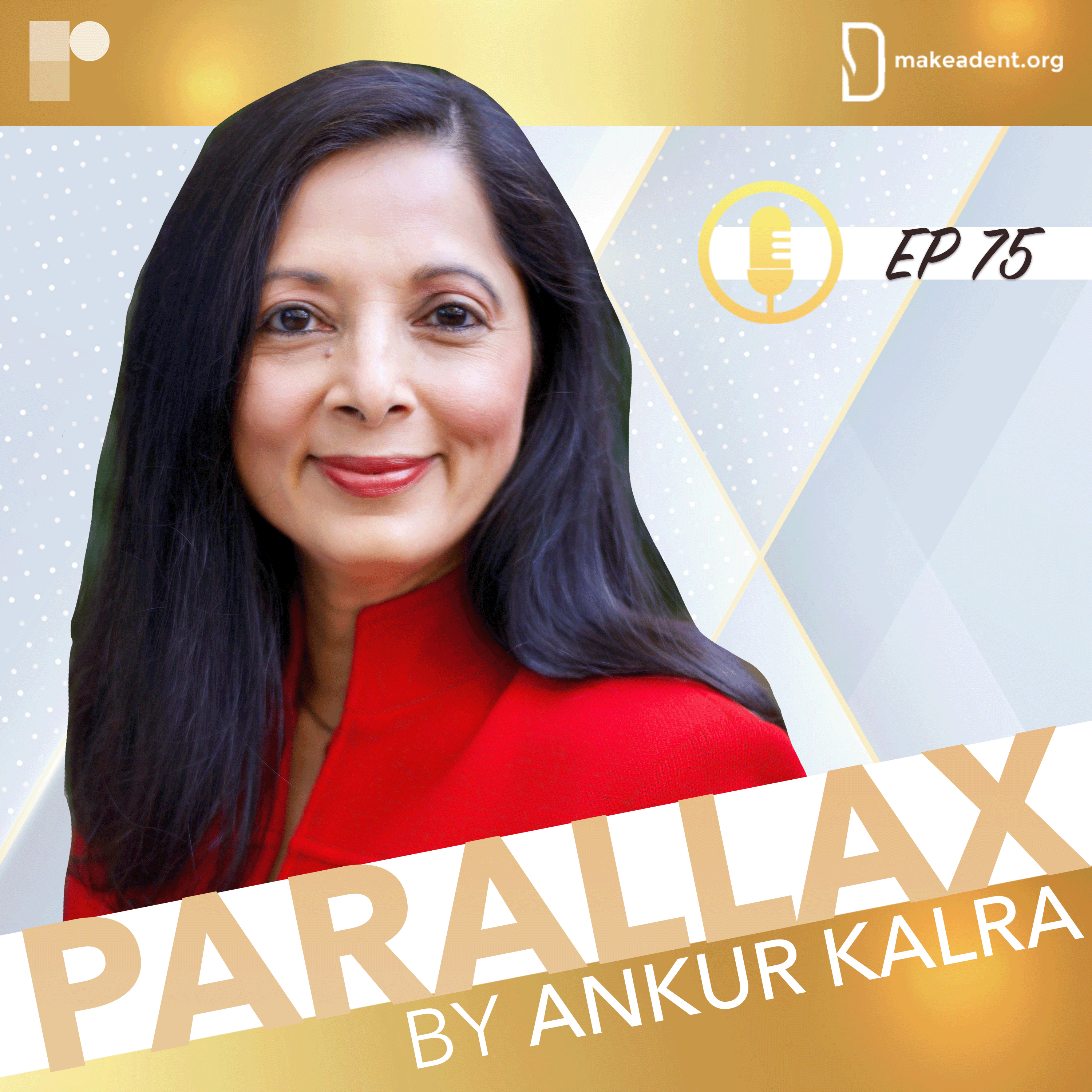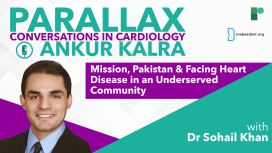
Dr Dipti Itchhaporia, 70th President of the American College of Cardiology (ACC), always met her fears with actions. One of her motivations to become a cardiologist was to be able to act in the face of acute situations. When Dr Itchhaporia, the fifth woman and the first of South Asian descent to fill in this position, was asked to summarise her presidential year, she answered: flourishing in opposition of languishing.
Dr Ankur Kalra’s guest in this episode of Parallax is Dr Dipti Itchhaporia, ACC Immediate-Past President, an interventional cardiologist and the Eric and Sheila Samson Endowed Chair in Cardiovascular Health, director of disease management for Hoag Heart and Vascular Institute, and associate professor at the University of California, School of Medicine.
In this personal interview, Dr Itchhaporia recalls her early years and the influences and decisions that led her to medicine and cardiology. She talks about her connection to ACC and the importance of choosing a professional home where one can find their purpose under the mentorship of their community. Ankur asks Dr Itchhaporia about the most memorable moments of her presidency. They talk about South Asian identity and curbing CVD in this population.
How does Dr Itchhaporia think about representation and the meaning of her historical position at ACC? What is Dr Itchhaporia’s message to women in cardiology?
Questions and comments can be sent to “podcast@radcliffe-group.com” and may be answered by Ankur in the next episode. Guest, @ditchhaporia hosted by @AnkurKalraMD. Produced by @RadcliffeCARDIO.

Dr Khan talks about education in the US and his decision to move back to Pakistan. Ankur asks Sohail about his new professional home: NICVD, a free clinic providing primary heartcare for Pakistanis. They discuss some of the innovations Dr Khan works on to improve patient care that utilise simple but effective interventions. We learn more about free screening clinics and about Dr Khan’s work on the largest ever study in Pakistan on association of Lpa and CV disease in South Asians.



What is the Global Cardiology University project? How does Dr Anavekar encourage trainees to re-examine their role in patient care? What is his advice to our listeners?

As Dr Kalra asks Dr Rao about the ways in which early career faculty members can get involved with the organization at a state level. Dr Rao shares his insider tips and highlights key events where individuals can further their participation.
How can you get involved with your local ACC chapter? How can you improve your leadership skills? What is Dr Rao’s advice for our listeners?

He explains how the complexity of nutrition and the compounds generated by the gut microbiome can impact our health. We learn more about three compounds produced by our gut microbiome that have a strong connection with heart disease.
Through this conversation, Dr Vuyisich invites us to reframe our approach to nutrition and prevention as a question of food education and data-driven science.


This episode features a vascular neurologist and an interventional cardiologist who will discuss the relationship between their two fields of medicine.

In this rich and insightful discussion, Dr Kittleson talks about the origins of famous #kittlesonrules, a collection of tips for doctors shared on Twitter, and her thoughts on mentorship. We learn more about Mastering the Art of Patient Care. Dr Kalra and Dr Kittleson discuss strategies for managing difficult situations in patient care.

What do you need to know about hospital investigations? What is the difference between OPPE and FPPE? How can you get educated on hospital bylaws and processes?







